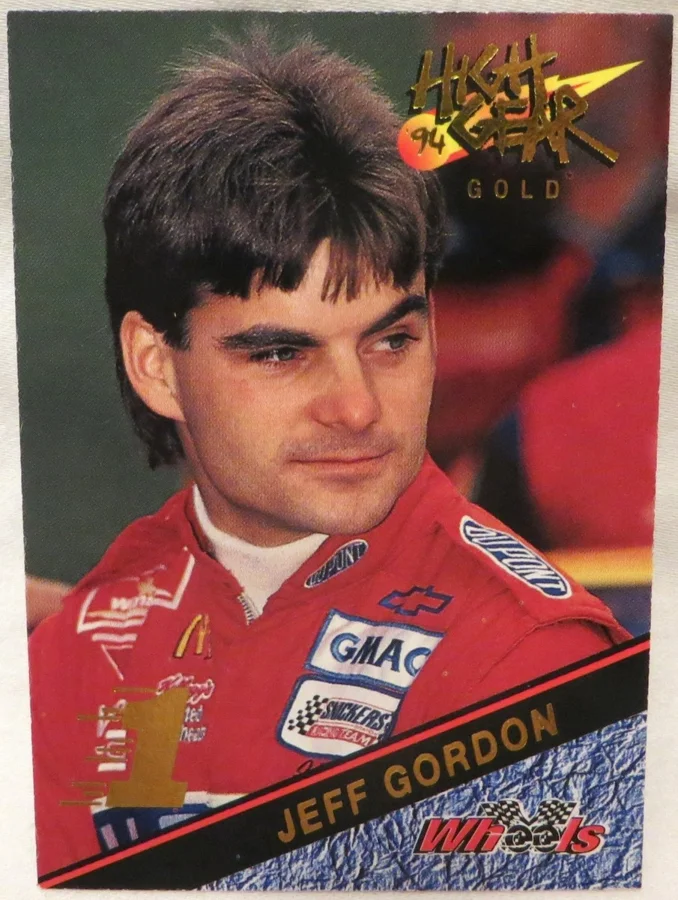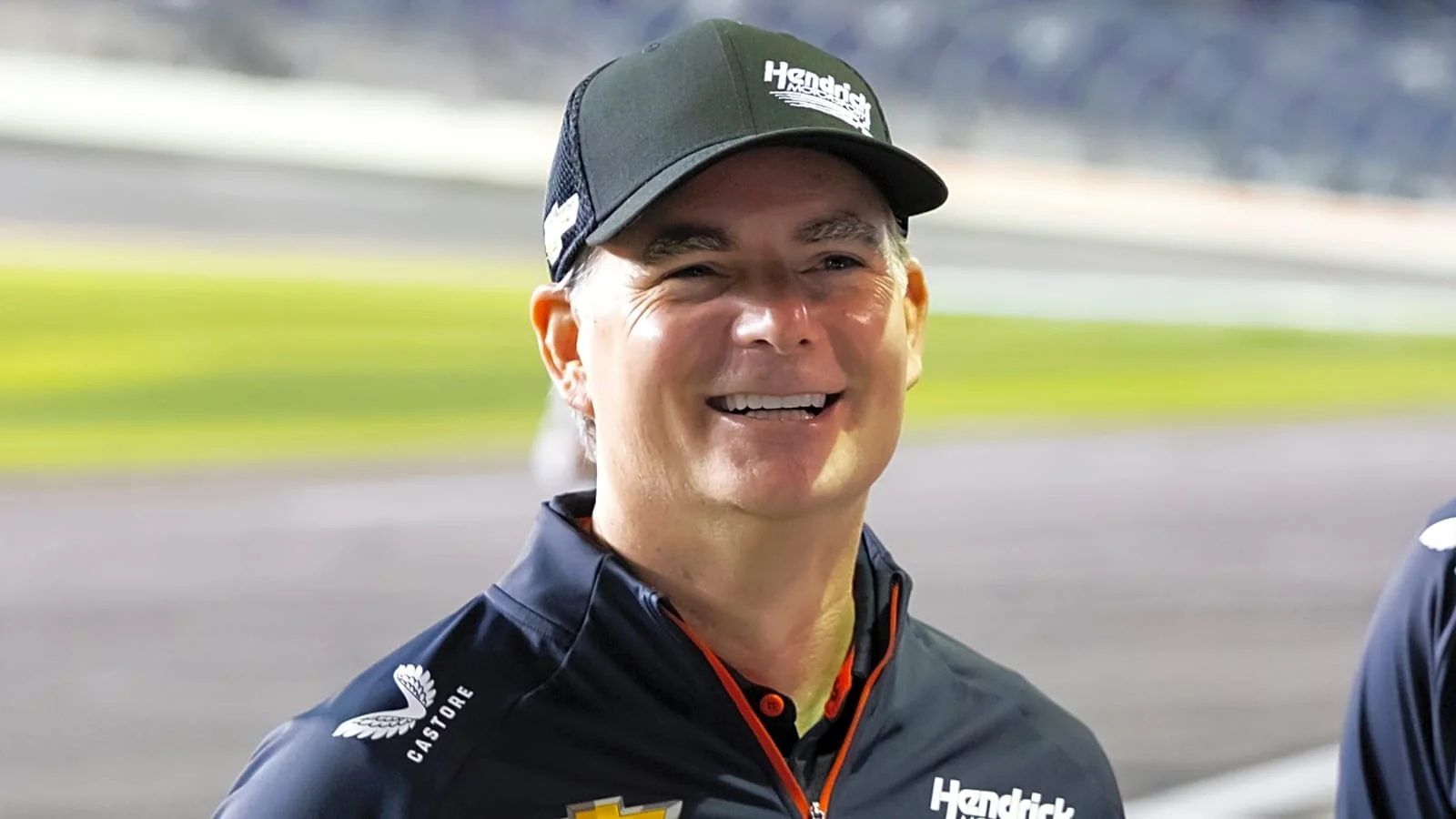Jeff Gordon has credited Ken Schrader as the NASCAR teammate who had the most profound influence on his career, saying Schrader’s guidance, camaraderie, and support helped shape his early days in the Cup Series. The impact that Schrader had on Gordon illustrates how the right teammate can transform a driver’s career, a theme that resonates throughout Jeff Gordon’s NASCAR journey.
How Ken Schrader Shaped Jeff Gordon’s Cup Career
When Jeff Gordon began racing full-time for Hendrick Motorsports in the Cup Series in 1993, he found unexpected support from Ken Schrader. Gordon described Schrader as his best teammate, recalling how the veteran racer made the intimidating world of NASCAR approachable for a newcomer. Schrader’s good humor and willingness to share knowledge created a positive atmosphere within the Hendrick Motorsports shop and made Gordon’s adjustment much smoother.
“One of my first teammates, Ken Schrader, was my best teammate. He had been in the series for about 10 years by the time I got there, and he was a fun-loving good guy, great driver, and an all-around help for a rookie like me,” Jeff Gordon said.
Gordon was first inspired to explore stock car racing after witnessing Schrader’s talent in open-wheel events, leading him to focus on NASCAR as his career direction. When Gordon joined the Hendrick organization, Schrader already had a decade of Cup Series experience, providing valuable advice and keeping the team’s morale high. The friendship and mutual respect forged during those years have endured well beyond their time as teammates, with Gordon noting that they remain close friends.

“Seeing his talent made me interested in NASCAR and wanting to know more about it. Then when I got there and we ended up as teammates, I could see Ken was supportive of the whole Hendrick organization and open to sharing ideas and information, but also someone who always kept us laughing. We’re still great friends to this day; I love that man,” he added.
Transition from Open-Wheel to Stock Car Racing
Jeff Gordon’s switch from open-wheel and Busch racing to the NASCAR Cup Series marked a significant turning point, not only for his own career but also for the broader perception of the sport in the 1990s. Rick Hendrick noticed Gordon’s talent in a key Atlanta race, leading to Gordon’s decision to join Hendrick Motorsports. At that time, the team ran two cars, with Schrader and Ricky Rudd behind the wheels. Gordon’s arrival represented a cultural and generational shift in a sport dominated by longtime drivers like Schrader, and Hendrick Motorsports became the launching pad for Gordon’s rapid rise in racing.
This partnership with Schrader helped cement Gordon’s confidence in stock car racing. Gordon went on to clinch four Cup titles, driving the now-iconic No. 24 car, and played a role in broadening NASCAR’s appeal to newer audiences and aspiring drivers from various racing backgrounds. His impact at Hendrick was both immediate and long-lasting.
Long-Term Friendships and Evolving Careers
Though Gordon retired from full-time driving in 2015, he remained a pillar of Hendrick Motorsports as vice chairman and co-owner. Meanwhile, Ken Schrader, known for his enduring passion for the sport, continues to compete in regional dirt track and ARCA series well into his late 60s, demonstrating his love for racing. The friendship between Gordon and Schrader, forged on the shop floor and the racetrack, persists as a testament to the bonds formed through shared experience in motorsports.
Challenges with Other Teammates: Gordon and Ricky Rudd
In addition to praising Ken Schrader’s influence, Gordon reflected on the difficulties he faced with Ricky Rudd, another Hendrick teammate during his early years. Rudd, who had been with Hendrick for three years before Gordon’s arrival, reportedly viewed the rookie as a challenge to his position within the team.
The competitive environment at the time meant that not all relationships were as easy as the one with Schrader. Rudd’s sense of being the established lead driver was unsettled by Gordon’s joining, which altered the dynamic within the group. Despite initial friction, Gordon said that with time, perspectives have softened, and old rivalries have given way to mutual respect.
“Having me arrive in a third Hendrick car was probably something he regarded as disrupting that momentum. But then when he left and started his own team for ’94, he and I still got into it. Thankfully, we can laugh about it now,” Jeff Gordon said, via the aforementioned source.
After departing Hendrick Motorsports, Rudd created his own team, Rudd Performance Motorsports, and continued to build his legacy as one of the drivers with the most starts in Cup Series history. The competitive spirit and occasional tension between Gordon and Rudd reflect the high stakes and strong personalities that define NASCAR at its highest levels.
The Lasting Impact of NASCAR Teammate Influence
Jeff Gordon’s reflections reveal how having influential teammates can play a central role in shaping a driver’s career, especially during their formative years in a demanding sport like NASCAR. Ken Schrader’s role as a mentor, friend, and supportive teammate greatly influenced Gordon’s journey and contributed to his later success as a champion and leader at Hendrick Motorsports. The story of Jeff Gordon’s NASCAR teammate influence offers insight into the importance of mentorship, camaraderie, and resilience in motorsports, and underlines how pivotal relationships can be for rising stars and veterans alike.
